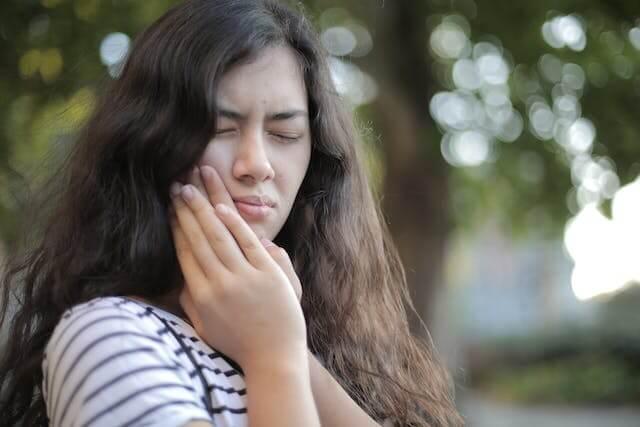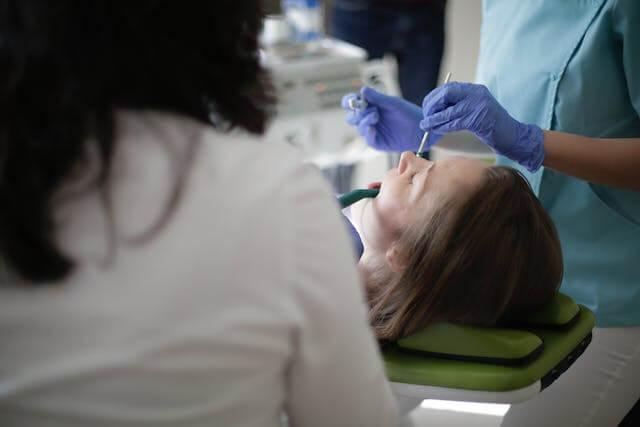
Bruxism, a medical term for teeth grinding, is a prevalent dental ailment that, when neglected, can give rise to an array of oral health complications. Countless individuals experience teeth grinding, frequently without awareness, and it can transpire both in daylight hours and during the nocturnal hours.
Fortunately, there are ways to address this issue and prevent further damage to your teeth. In this article, we will explore how to fix grinded teeth, discussing both treatment options and preventive measures to maintain your dental health.
Bruxism, often referred to as teeth grinding, is a prevalent dental condition that necessitates comprehensive comprehension to effectively address. This oral habit involves the unintentional grinding, clenching, or gnashing of one's teeth, and it can occur during wakefulness, termed awake bruxism, or while asleep, known as sleep bruxism. To effectively combat this issue, it's essential to delve into the nuances of bruxism and its multifaceted nature.
Awake bruxism typically manifests as a daytime occurrence, often influenced by stressors and anxiety-inducing situations. Individuals who clench or grind their teeth while awake may do so subconsciously, making it crucial to identify the underlying triggers and implement stress management techniques to alleviate this form of bruxism.
On the other hand, sleep bruxism takes place during the nighttime slumber, making it more challenging to recognize without external observations. This variant can have various causes, ranging from dental misalignments to psychological factors like stress and anxiety. As the exact cause can vary from person to person, a comprehensive evaluation by a dental professional is crucial to pinpoint the root of the issue accurately.
Identifying the symptoms of bruxism is important in knowing whether you might be afflicted by this condition. Bruxism can manifest through various common signs and indicators, all of which serve as crucial red flags. If you suspect that you or someone you know might be grinding their teeth, it's imperative to keep an eye out for the following telltale symptoms:
Dental splints or mouthguards are one of the most common and effective treatments for bruxism. These custom-made devices, often recommended by dentists, are designed to protect your teeth from grinding during sleep. They provide a barrier between the upper and lower teeth, preventing them from coming into contact and minimizing the damage caused by grinding.
To obtain a dental splint or mouthguard, you should consult your dentist. They will take impressions of your teeth to create a customized device that fits comfortably in your mouth. Wearing a dental splint or mouthguard consistently can significantly reduce the impact of bruxism on your teeth and jaw.
For many individuals, stress and anxiety play a significant role in the development and exacerbation of bruxism. Therefore, managing stress can be an effective way to address the problem at its root. Techniques such as relaxation exercises, meditation, and deep breathing can help reduce stress levels, potentially leading to a decrease in teeth grinding.
In some cases, misaligned teeth or an improper bite may contribute to bruxism. Your dentist may recommend orthodontic treatment, such as braces or dental crowns, to correct these issues. By aligning your teeth correctly, the pressure on your jaw is reduced, which can mitigate or eliminate teeth grinding.
In severe cases of bruxism, where other treatments have not been effective, medication may be prescribed. Muscle relaxants, anti-anxiety drugs, and even Botox injections into the jaw muscles can help alleviate the symptoms of bruxism. However, these measures are typically considered a last resort due to potential side effects and the temporary nature of the relief they provide.
Simple lifestyle adjustments can also contribute to the reduction of teeth grinding. Cutting back on caffeine and alcohol, avoiding chewing gum, and refraining from biting on non-food objects (like pens or pencils) can help minimize the risk of exacerbating bruxism. Additionally, practicing good sleep hygiene can be beneficial, as bruxism often occurs during sleep.

Preventing teeth grinding is always preferable to addressing the issue after it has already caused damage. Here are some preventive measures to consider:
If you're experiencing severe bruxism or suspect you may have this condition, it's crucial to seek professional dental care. Charlotte Emergency Dental is a trusted dental clinic that can provide expert guidance and treatment for bruxism and other dental issues. Our experienced dentists are dedicated to ensuring oral health and well-being.
Visit the Charlotte Emergency Dental website to learn more about our services and schedule an appointment. Don't hesitate to contact us if you need assistance with fixing grinded teeth or any other dental concerns.

Grinding teeth is a common dental issue that can lead to various complications if left untreated. Fortunately, there are effective ways to address bruxism, from dental splints and stress management to lifestyle adjustments and dental corrections.
Additionally, preventive measures can help reduce the risk of teeth grinding in the first place. If you're experiencing symptoms of bruxism, seeking professional dental care is essential to protect your oral health. Remember, Charlotte Emergency Dental is there to assist you in your journey toward healthier teeth and a brighter smile.

We have temporarily updated our hours, reflected below.
MONDAY to FRIDAY
9:00am – 7:00pm
SATURDAY to SUNDAY
9:00am – 3:00pm
Save time, print online! Fill out forms online before your first visit to shorten your appointment time with us.